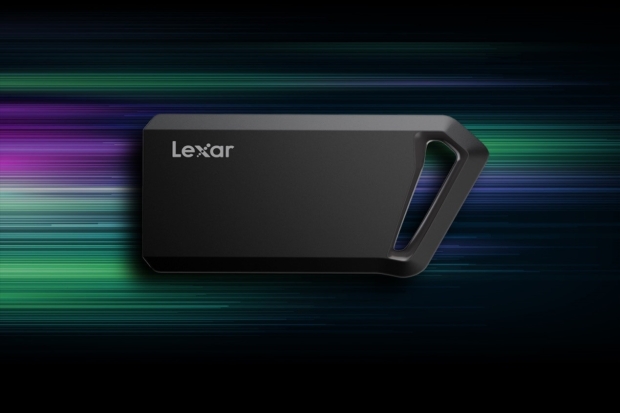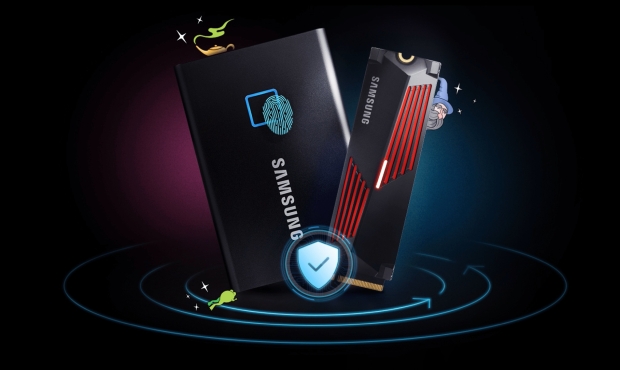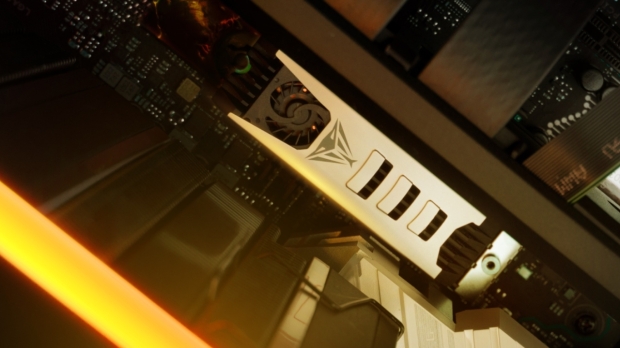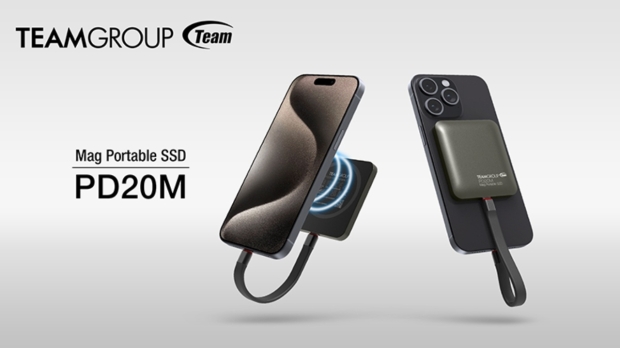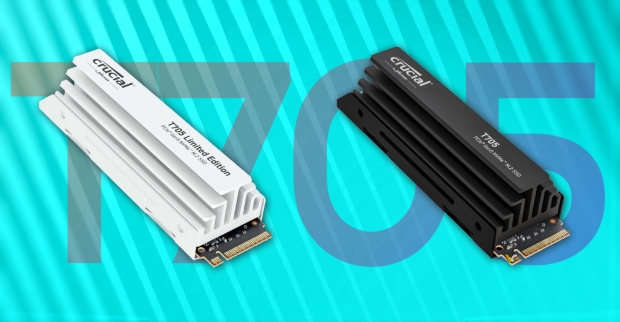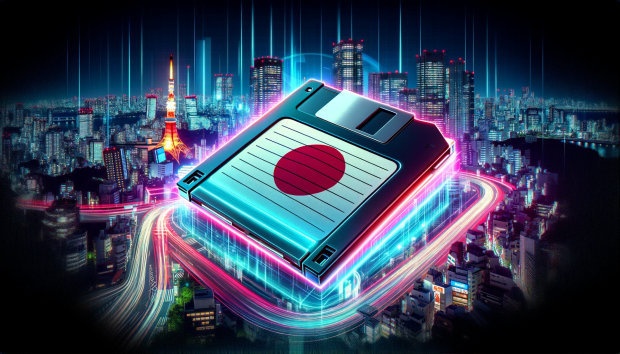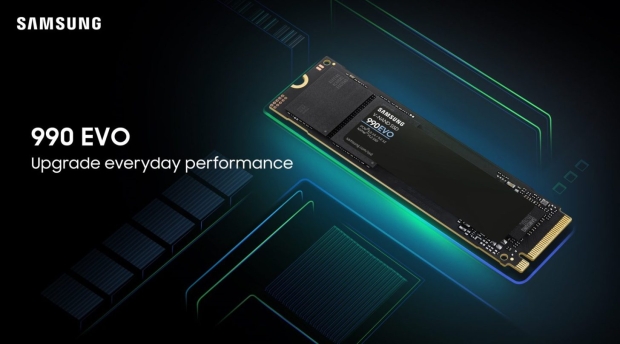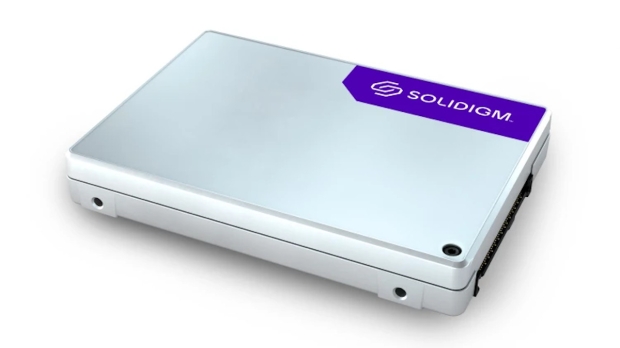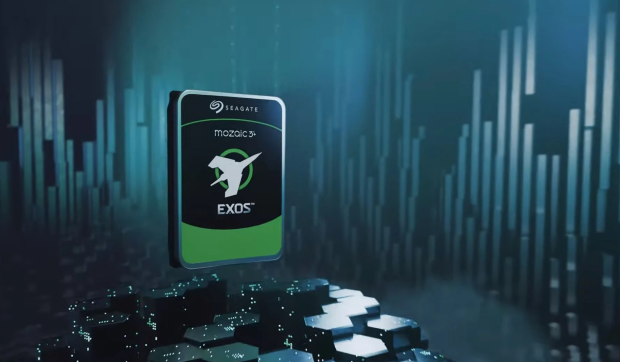Storage News - Page 4
Lexar's new SL600 Portable SSD is super fast, hits speeds of up to 2000MB/s
The portable storage solution market is stacked with viable options, but if you're after pure performance, look no further than the new Lexar Professional SL600 Portable SSD - which delivers up to 2,000MB/s read and write speeds - maximizing its USB 3.2 Gen2x2 interface.
Available in 512GB, 1TB, and 2TB capacities, Lexar's latest is all about catering to photographers, videographers, and content creators looking for speed, and it's available now at retailers like B&H, Adorama, and Best Buy Canada. And, as it's compatible with any device with a modern USB port, it's also great for PC, PlayStation, and Xbox gamers looking to expand storage without sacrificing overall speeds.
As a portable SSD, the Lexar Professional SL600 is designed to be taken on the go and features a durable aluminum case/enclosure that's shock and vibration-resistant. And for those conscious about transporting and transferring data, you've got access to Lexar DataShield 256-bit AES encryption software to protect files.
Update to Samsung Magician Software for SSDs resolves 'high severity' security vulnerability
Samsung Magician Software is a powerful bit of software designed for Samsung's range of internal SSDs, external SSDs, memory cards, and USB flash drives. In addition to providing real-time stat on storage drive health and monitoring tools, there are benchmark options, diagnostic scans, optimizations, and a suite of secure data management tools.
Odds are, if you're rocking an SSD like the excellent Samsung 990 PRO, you've probably got Samsung Magician Software installed on your PC. According to our review, the Samsung 990 PRO is one of the "best-performing flash-based consumer SSDs" in the world.
So, if you're using a Samsung SSD, make sure you update to Version 8.0.1 because it resolves a security issue flagged as 'High Severity' on the NIST Common Vulnerability Scoring System (CVSS) with a score of 7.3.
Patriot Memory unveils its new Viper PV553 PCIe Gen5 SSD with blower fan cooling
Patriot has unveiled its latest storage solution with the new Viper PV553 M.2 2280 PCIe Gen5 x4 SSD, arriving in 1TB, 2TB, and 4TB flavors, featuring what the company calls an 'innovative active cooling system.'
The Viper PV553 offers next-gen SSD performance, with read/write speeds of up to 12,400MB/s and 11,800MB/s, and the promise of consistent cooling and thermal performance even during extended usage during gaming sessions.
Alongside the slim 16.5mm aluminum heat shield and thermal sensors, you can find a small fan - with Patriot confirming that this is its first SSD to incorporate a blower-fan design. Make no mistake, though, you can barely see it. Regarding SSDs with active-colling go, the Patriot Viper PV553 looks stunning - with a sleek sports vehicle-like design that would look great in a PC gaming build.
TEAMGROUP PD20M Magnetic External SSD connects and sticks to your smartphone
TEAMGROUP's latest external storage solution is the new TEAMGROUP PD20M Magnetic External SSD, a thin and lightweight unit designed to be taken on the go with the ability to snap onto a mobile device. Weighing in at a featherweight 40 grams and a thickness of just 0.82 cm, it's a portable SSD that attaches to a smartphone.
And it's MagSafe-compatible, which is great to see - snap it on, and you're good to go. TEAMGROUP says it's "one of the lightest and thinnest MagSafe-related products on the market," easy to grip, and comfortable to hold.
The PD20M Magnetic External SSD includes a USB Type-C interface with TEAMGROUP confirming in the announcement that it's compatible with the latest Apple iPhone 15 Pro and Pro Max smartphones - with up to 10 Gbps transfer speeds.
Crucial's new T705 PCIe Gen5 SSD teased: up to 14.5GB/sec reads, up to 4TB capacity
Crucial already has a fantastic T700 Gen5 SSD on the market, but the company is working on a new T705 series Gen5 SSD that has even faster read speeds than the T700 series Gen5 SSDs.
The new Crucial T705 SSDs will make use of Micron's new B58R FortisFlash TLC NAND technology, which will provide speeds higher than the T700 SSDs. According to the latest leaks, we can expect the 2TB variant to be the fastest T705 SSD with sequential read speeds of up to 14.5GB/sec (14,500MB/sec) and write speeds of up to 12.7GB/sec (12,700MB/sec).
Crucial's new 1TB variant of the T705 Gen5 SSD will feature 13.6GB/sec reads (13,600MB/sec) and 10.2GB/sec (10,200MB/sec) writes, while the largest 4TB capacity T705 Gen5 SSD (which there aren't a lot of ) will feature 14.1GB/sec (14,100MB/sec) reads and up to 12.4GB/sec (12,400MB/sec) writes. Damn good if you want 4TB of ultra-fast Gen5 SSD storage.
KIOXIA SSDs are headed to the International Space Station, tune to watch the launch on NASA TV!
The HPE Spaceborne Computer-2 is headed to the International Space Station (ISS) on Tuesday, January 30 at 9:07 am PT on board the SpaceX Falcon 9 as part of the Northrop Grumman's 20th Commercial Resupply Services (NG-20) mission. The HPE Spaceborne Computer-2 is all about transforming orbital space flight by being able to accelerate information processing and research with the power of a commercial supercomputer - in space!
Traveling at incredible speed aboard the ISS, HPE (Hewlett Packard Enterprise) has partnered with KIOXIA America, Inc., a leader in 3D Flash Memory technology, to provide SSD storage technology to house all of that space data. This means KIOXIA RM Series Value SAS, Enterprise SAS, and KIOXIA XG Series NVMe SSDs are space-ready storage solutions.
It was only a matter of time before we sent SSDs into space, and you can watch this incredible event live on NASA TV. The HPE Spaceborne Computer-2 isn't just about processing space data, it's also designed to advance healthcare, AI, 5G networks, and more.
Japanese government no longer requires businesses to submit information with floppy disks
The Japanese government is slowly moving into the current age of technology, where it's finally starting to change: the Japanese government will soon no longer require businesses to provide information on floppy disks (yes, the 1.44MB floppy disks from the 90s) and CD-ROMs.
This started back in 2022, when the Minister of Digital Affairs, Taro Kono, pushed various branches of the Japanese government to stop requiring businesses to send information to the government on physical media that is far, far outdated... like floppy disks and CDs.
Japan's Ministry of Economy, Trade and Industry (METI) was one of the first to switch from physical media, with METI announcing last week: "Under the current law, there are many provisions stipulating the use of specific recording media such as floppy disks regarding application and notification methods".
Samsung 990 EVO SSD released: hybrid Gen5 + Gen4 SSD with up to 5GB/sec reads starts at $124.99
Samsung has officially announced its new 990 EVO SSD, a new hybrid storage SSD that supports both Gen5 and Gen4 standards with pricing starting at $124.99 for the 1TB model.
The latest Samsung 990 EVO SSD can provide you with storage goodness with either PCIe 4.0 x4 or PCIe 5.0 x2 standards, while there will be no changes in bandwidth if you put it in PCIe 4.0 or PCIe 5.0-capable M.2 SSD slots on your motherboard. We have up to 5GB/sec (5000MB/sec) reads and up to 4.2GB/sec (4200MB/sec) writes on the Samsung 990 SSD.
Jose Hernandez, Senior Director of Memory Product Marketing at Samsung said in the press release: "The 990 EVO delivers a hybrid storage solution that lets you easily bring flexibility and future proof your setup. These drives balance performance, power efficiency and reliability, making them a versatile choice for the latest interface, and great for a variety of everyday tasks, like gaming, working, editing and more".
Solidigm 61TB monster SSD, the biggest in the world, is now on sale for those with deep pockets
Solidigm's D5-P5336 is the biggest SSD in the world with its largest capacity model hitting a whopping 61.44TB, and this drive is on sale in the US.
TechRadar Pro spotted that the D5-P5336 - which was revealed back in July 2023 - is now available from a couple of retailers, though as you can imagine, a 61TB SSD is not going to come cheap (and is obviously targeted at the enterprise arena).
Technically, it's not ready to ship yet, but you can pre-order the D5-P5336 from Tech-America for $3,692, and PCNation has it at a slightly pricier level of $3,975. Apparently the drives are expected to ship later in the year, though we don't know exactly when.
Seagate launches the world's largest hard drive at a very reasonable price
Seagate has upped its game in the hard drive market, solidifying itself as the first-place holder for the world's largest hard drive.
The company knocked off the new previous first place holder, Western Digitals Gold 24TB hard drive, with its recently launched Seagate Exos X Mozaic 3+ that set a new standard of 30TB with ten 3TB platters. Reports indicate the new hard drive uses new technology that enabled Seagate to squeeze more platters into the drive, enabling an impressive 1.742 TB per square inch. Notably, the drive features a 12-nanometer integrated controller that improves its efficiency by 3x compared to previous generations.
If you are wondering about cost, Seagate has confirmed to TechRadar that the drive will be cheaper compared to existing models, as the cost of development has been reduced due to Seagate taking advantage of existing technologies used in previous generation models. TechRadar proposes an approximate cost of $15 per Terabyte of storage, which would make the Exos X Mozaic 3+ a $450 hard drive, quite a bargain if you are just looking for an intense amount of storage.


